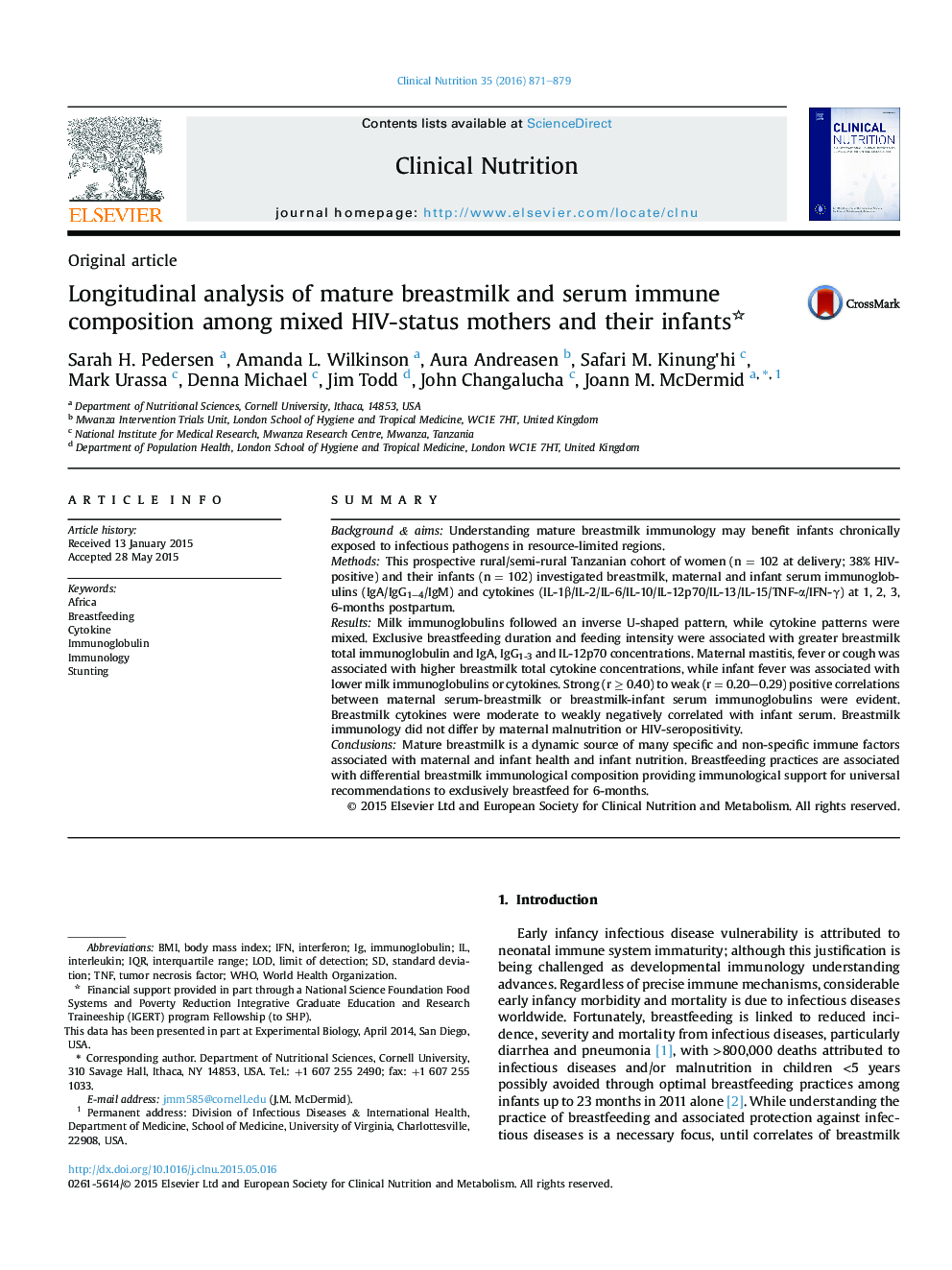| Article ID | Journal | Published Year | Pages | File Type |
|---|---|---|---|---|
| 5872148 | Clinical Nutrition | 2016 | 9 Pages |
â¢Humoral and immune molecule composition varies over time in mature breastmilk.â¢Mature milk immune composition did not differ by maternal HIV-seropositivity alone.â¢Exclusive breastfeeding practice is associated with more immune-concentrated milk.â¢Few exclusive breastfeed to 6-months; infant feeding education and support needed.â¢Observations immunologically support WHO infant feeding recommendations and goals.
SummaryBackground & aimsUnderstanding mature breastmilk immunology may benefit infants chronically exposed to infectious pathogens in resource-limited regions.MethodsThis prospective rural/semi-rural Tanzanian cohort of women (n = 102 at delivery; 38% HIV-positive) and their infants (n = 102) investigated breastmilk, maternal and infant serum immunoglobulins (IgA/IgG1-4/IgM) and cytokines (IL-1β/IL-2/IL-6/IL-10/IL-12p70/IL-13/IL-15/TNF-α/IFN-γ) at 1, 2, 3, 6-months postpartum.ResultsMilk immunoglobulins followed an inverse U-shaped pattern, while cytokine patterns were mixed. Exclusive breastfeeding duration and feeding intensity were associated with greater breastmilk total immunoglobulin and IgA, IgG1-3 and IL-12p70 concentrations. Maternal mastitis, fever or cough was associated with higher breastmilk total cytokine concentrations, while infant fever was associated with lower milk immunoglobulins or cytokines. Strong (r â¥Â 0.40) to weak (r = 0.20-0.29) positive correlations between maternal serum-breastmilk or breastmilk-infant serum immunoglobulins were evident. Breastmilk cytokines were moderate to weakly negatively correlated with infant serum. Breastmilk immunology did not differ by maternal malnutrition or HIV-seropositivity.ConclusionsMature breastmilk is a dynamic source of many specific and non-specific immune factors associated with maternal and infant health and infant nutrition. Breastfeeding practices are associated with differential breastmilk immunological composition providing immunological support for universal recommendations to exclusively breastfeed for 6-months.
